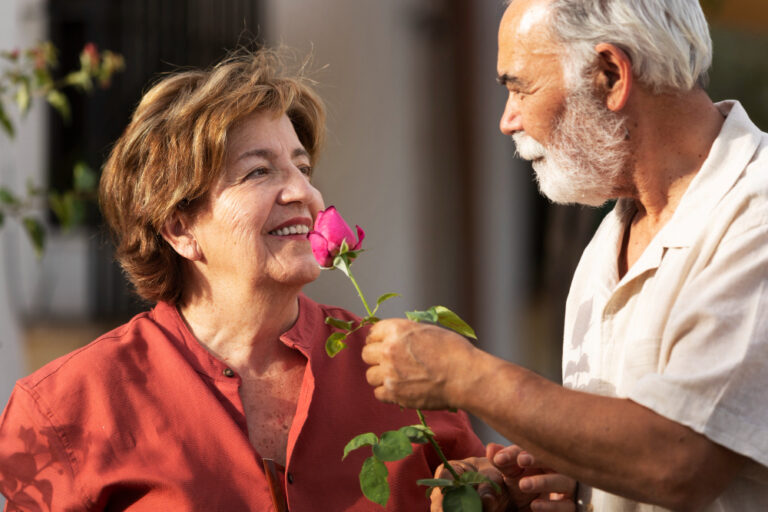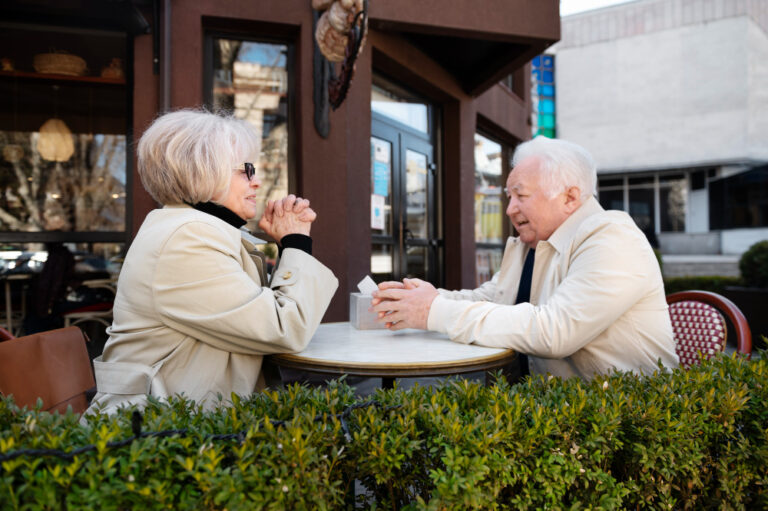Finding the right partner through senior dating is an important step in the pursuit of happiness in later life for many seniors, but it is especially important to be thoroughly prepared before deciding to enter into marriage. Whether it’s emotional, practical, or legal, these preparations will provide a solid foundation for a successful marriage. Here are a few important areas that seniors should focus on before entering into marriage.
Re-examine the Foundation of the Relationship
Before deciding to get married, both parties need to take a hard look at whether their relationship with each other is deep and stable enough. This can be assessed by asking a few questions:
1. Whether Both Parties Share the Same Values: Differences in values may bring about friction at different stages of life. Older people need to pay special attention to the harmonization of each other’s ideas on family, health, financial management, etc.
2. Whether You Understand Each Other’s Habits: Living together requires tolerance and integration. If the other person has some habits that are different from yours, can they accept them and find a balance?
3. Whether the Way of Conflict Resolution Is Healthy or Not: The partner you meet through Senior Dating may have experienced complicated relationship experiences. Understanding each other’s ways of dealing with conflict and finding joint problem-solving mechanisms amid conflict will be the cornerstone of a marriage.
Financial Planning and Transparency
For older people, financial issues are especially important in a marriage. Both parties need to be honest with each other and do the following:
1. Clarify Their Financial Situation: This includes their savings, debts, investments and daily expenses. Being honest with each other about finances can avoid possible misunderstandings in the future.
2. Discuss How Finances Will Be Divided: Do you need to combine assets or keep separate finances? How will daily expenses be shared? These issues need to be communicated and agreed upon in advance.
3. Make Legal Planning: If both parties have children, the issue of property inheritance may be very sensitive. By consulting a lawyer, you can work out reasonable financial arrangements, such as prenuptial agreements and wills, to protect the rights and interests of both parties and family members.
Integration of Health and Lifestyle
Older people face not only love in marriage, but also the practicalities of life. Here’s what to prepare and discuss ahead of time:
1. Openness and Support for Health Conditions: Older people may face a number of health problems. Before marriage, both partners should be open about their health conditions and discuss how they can work together to face possible medical challenges in the future.
2. Lifestyle Adjustments: Older adults have relatively established habits. Moving, readjusting to a living environment or adjusting daily arrangements will require both partners to work together to find ways that are comfortable for each other.
3. Family Harmony: Each partner may have adult children or grandchildren. How to manage these family relationships and avoid possible conflicts are important issues to discuss before marriage.
Psychological Preparation and Emotional Support
1. Be Realistic in Your Expectations of Marriage: Marriage for older people is more about companionship and understanding than the passion of youth. Both parties need to be clear about each other’s expectations to avoid disappointment due to misunderstanding.
2. Overcome Psychological Barriers: For some older people, remarriage may be accompanied by nostalgia for past marriages or uncertainty about the future. These psychological barriers need to be addressed through communication or professional counseling.
3. Cultivate Common Interests: The longevity of a marriage lies in growing together. Elderly people can try to cultivate some common interests, such as traveling, reading, or gardening, to add fun to their future life together.
Arrangement of Law and Social Affairs
1. Marriage Registration and Legal Obligations: Before entering into a marriage, ensure that you are aware of the local legal obligations related to marriage, such as the community of property, medical decision-making authority, etc., to avoid legal disputes in the future.
2. Medical Authorization and Decision-Making Arrangements: Does one partner have the right to make medical decisions if the other faces health problems in the future? Clarifying these issues before marriage can avoid confusion at a critical time.
3. Social Security and Retirement Plans: Marriage may affect the social security or retirement plans of both parties. Understanding and evaluating the impact of marriage on these benefits is a special concern for older adults.
Trial Marriage: Experience Real Married Life
Before getting officially married, consider a trial marriage. This practice allows both parties to make a final decision based on a deeper understanding of each other’s habits and ways of interacting. Through a trial marriage, both parties can: determine whether they can maintain harmony in daily chores; better plan their future life goals together; and avoid the regrets that come with impulsive marriages.
Build a Support Network
At the end of the day, marriage is not just about two people. Seniors also need a healthy support network that includes:
1. Understand and Support Family Members: Explaining to family members the significance of remarriage and enlisting their support can help minimize potential conflicts.
2. Inclusion of Friends and Community: Keeping in touch with friends and participating in community activities can help both partners gain greater external support in their marriage.






